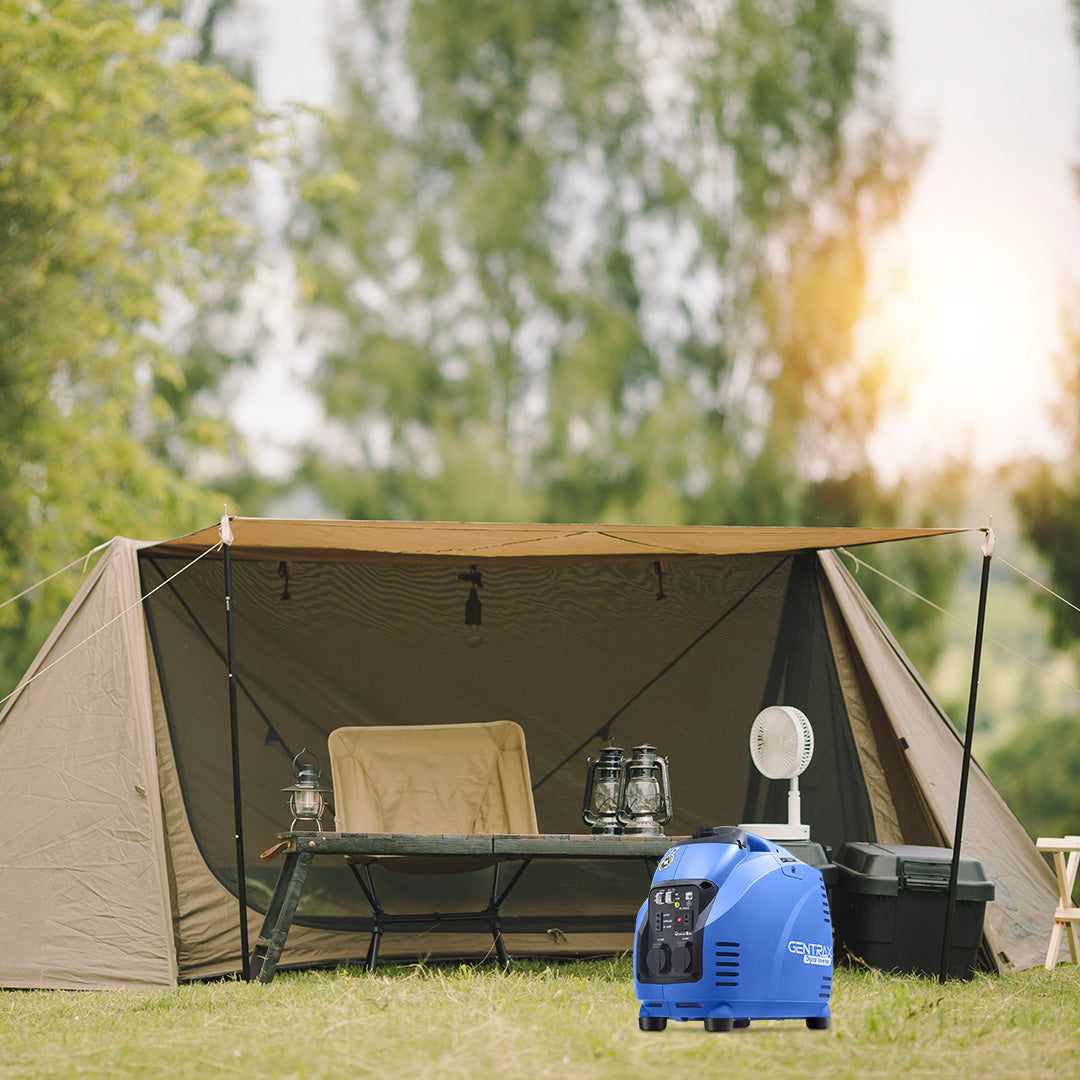For those who love the great outdoors, portable generators stand out as a mobile and convenient power source. These compact powerhouses are not only essential in emergencies but are also perfect for recreational activities such as camping, hiking, and more. This article explores the role of portable generators in enhancing outdoor experiences, highlighting their ease of use, portability, and the types of equipment they can power.
The Mechanics Behind the Magic
Portable generators are designed to be light and easy to transport, making them ideal for various outdoor settings. These generators typically run on fuel like diesel, petrol, or gas and are designed to convert mechanical energy into electrical power through an alternator. This transformation allows them to supply electricity in areas where conventional power sources are unavailable.
Ideal for a Range of Outdoor Enthusiasts
Portable generators cater to a wide array of outdoor enthusiasts. For campers and hikers, these devices are invaluable for powering essential equipment such as lights, portable fridges, and cooking appliances. Additionally, these generators can provide a steady power supply for individuals living off-grid, thus supporting a self-sufficient lifestyle.
The Convenience of Portability
What sets portable generators apart is how mobile and portable they are. Unlike their heavier counterparts, these generators are compact and lightweight, making them easy to move and set up with minimal effort. These advantages are particularly useful for activities like camping and caravanning, where space is at a premium and noise levels need to be kept to a minimum.
Powering Your Outdoor Adventures
Portable generators can power a wide range of devices essential for outdoor living. They can light up your campsite, run a small heater, or charge your mobile devices, ensuring you have the basics even in the most remote locations. For more demanding environments, like construction sites or outdoor events, portable generators provide the necessary power to reliably operate tools and other heavy equipment.
Comparing Generator Types
When choosing a portable generator, it's important to understand the difference between regular and inverter generators. Regular generators can handle large appliances and tools, making them suitable for more heavy-duty tasks. However, they operate at a constant speed and can be quite noisy. On the other hand, inverter generators adjust their engine speed based on power demand, making them more fuel-efficient and quieter. This makes inverter generators particularly suitable for camping and other leisure activities. They produce cleaner power that is safe for sensitive devices like smartphones and laptops.
Embracing the Outdoor Lifestyle with Reliable Power
Portable generators have redefined the boundaries of outdoor living and adventure. Whether you’re on a family camping trip, a remote construction project, or living off the grid, these generators ensure that power is always within reach. And as technology advances, portable generators are becoming more fuel-efficient, powerful, and environmentally friendly.
Portable generators are more than just tools; they are essential companions for anyone looking to explore the great outdoors without sacrificing the comforts of modern-day amenities. Their versatility, ease of use, and reliability make them a must-have in any outdoor adventurer's checklist.
Frequently Asked Questions about Portable Generators
1. What are the main types of fuel used by portable generators?
Portable generatos can run on various fuel types. Depending on the generator, you can use diesel, petrol, or gas.
2. Can portable generators be used during all types of weather conditions?
Portable generators are versatile, but you should be careful if using them during bad weather conditions. It is recommended to place the generator on firm, level ground and ensure the exhaust is not obstructed. Avoid using the generator in wet conditions, such as rain or snow, to prevent electrical hazards and damage to the unit.
3. What is the difference between a regular generator and an inverter generator?
Regular generators run at a constant speed and are typically better for powering larger appliances and tools. In contrast, inverter generators adjust their engine speed based on the power demand, making them quieter and more fuel-efficient. They also produce cleaner power, which is safer for sensitive electronic devices like mobile phones and laptops.
4. How should a portable generator be maintained for optimal performance?
Regular maintenance is crucial for keeping your portable generator running smoothly. Check the oil level before each use, ensure the air filter is clean, and use the recommended types of fuel and oil. After around 25 hours of using a new generator, it should undergo a break-in period where it operates at no more than 75% of its rated capacity, then change the oil. Besides break-in, follow the maintenance schedule to ensure optimal performance.
5. What are the safety precautions to consider when using a portable generator?
Safety is paramount when using portable generators. Always ensure the unit is properly earthed to avoid electrical shocks. Do not overload the generator beyond its rated capacity to prevent damage and potential hazards. Keep the generator in a well-ventilated area to avoid the risk of carbon monoxide poisoning, and never operate the generator indoors. Earthing is recommended, but some generators can be used without grounding.
